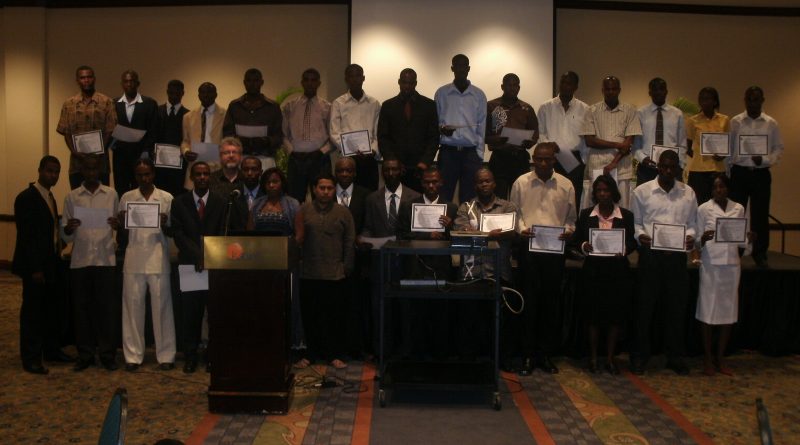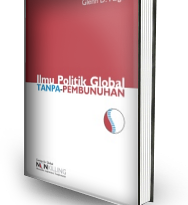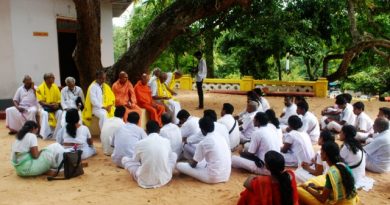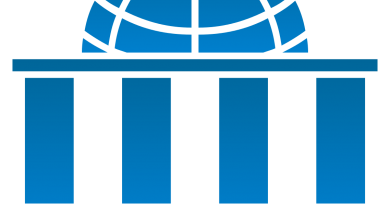Nonkilling Haiti Exploratory Program Held in Port-au-Prince and Jacmel
In May 12-19 the Center for Global Nonkilling completed a “Week of Reflections on the Reconstruction of Haiti, the Sarvodaya Approach and Efforts Toward a Nonviolent, Killing Free Haitian Future” in Port au Prince and Jacmel, Haiti.
The week of contemplation in action while searching for implementable initiatives proposed and developed by Haitian communities and leaders was a partnership of the Centre Caraïbeen pour la Nonviolence Globale et le Developpement Durable (CCNGD), the Center for Global Nonkilling, and Sarvodaya USA. Dr. Max Paul, Founder of CCNGD hosted Shisir Khanal, Executive Director of Sarvodaya USA and Thomas A. Fee, CGNK Leadership Team member.
Dr. Paul and his cadre of professional volunteer staff organized a series of events in homes, universities, churches, community centers, restaurants, and an all-day conference at the Karibe Hotel/Convention Center which featured a variety of speakers including a comprehensive keynote presentation by the Minister of Tourism on the plans for reconstruction in the four sectors of Haiti. There were more than 120 participants at the Saturday conference.
During the week, in total, more than 300 participants from all facets of Haitian society were involved in discussions, meetings and informal conversations about imagining a killing free Haiti. New copies of the new French and Kreyol translations of Nonkilling Global Political Science by Dr. Glenn D. Paige were featured at several events and copies were presented to CCNGD by Tom Fee. The works of Dr. A.T. Ariyaratne and the Sarvodaya Shramadana ovement were presented by Shisir Khanal to Dr. Paul and CCNGD.
Shisir Khanal engaged a variety of Haitian audiences in conversations about the principles of sustainable development, nonviolence and nonkilling that are at the core of the Sarvodaya approach as it has been implemented for almost 50 years in Sri Lanka where it was founded by Nobel Peace Prize nominee Dr. A.T.Ariyaratne (affectionately called “Dr. Ari” by many).
Sarvodaya literally means “awakening of all” and a critical first stage in this approach is a sense of spiritual focus for each person and the community. Dr. Ariyaratne is an advocate of Gandhian principles and practices of non-violence, rural development, and self-sacrifice. The well regarded Sarvodaya Movement has effectively blended secular approaches and principles of development and Buddhist ideals of selflessness and compassion in action.
The Haitian participants asked about the efforts of Sarvodaya in Sri Lanka that addressed disaster management and mitigation after the 2004 tsunami that devastated south Asia including the model eco-village that houses more than 55 families. Participants throughout the week of activities asked challenging questions about other Sarvodaya programs that address women, children and orphans; education; water and sanitation; health and preventive care; psychological and spiritual healing; housing and resettlement; job creation; local community managed micro-finance; environmental management and ecology; communication; documentation and legal assistance; integrated village awakening efforts; and conflict resolution and peace building.
A critical question that is being puzzled through after this week of activities by local leaders is what the Kreyol Haitian version of Sarvodaya might look like in action? Already several people have formed a Comite Sarvodaya in Port au Prince to develop plans and proposals for projects such as a community build school, neighborhood clean ups, and addressing the lack of local credit and finance.
Focusing on already developed human capabilities and skills for nonviolent leadership that seeks nonkilling future societies; CGNK’s Tom Fee highlighted the existing resources and local leadership capabilities in Haiti as evidenced by the dozens of young leaders already trained to break cycles of violence through CCNGD trainings and seminars. Young men and women told stories of personal transformation and new ways of living without violence in relationships, families, schools, communities and workplaces. This witness to nonviolence set a tone of hope for change at all levels of Haitian society and governance.
Approximately thirty young leaders were awarded certificates by CCNGD staff at the Karibe Convention Center on Saturday, 15 May 2010. CCNGD’s posters of Gandhi, Nelson Mandela and Martin Luther King Jr. were displayed at many of the events throughout the week as examples of leaders who in the past century have changed societies and the course of human events through the courage, conviction and moral persuasion of nonviolent and nonkilling leadership.
Beyond Gandhi in India and King against racism in the USA and Mandela in South Africa, Tom cited other compelling examples such as the recent Liberian womens’ peace movement, CGNK honorary sponsor and Nobel Peace Laureate Mairead Maguire’s efforts in Northern Ireland, the People’s Power movement in the Philippines and the work toward a Nonkilling Filipino Society. These stories and the infinite human capacity to find creative, nonviolent, nonkilling methods to address violence and change societies were discussed throughout the week. Fee asked participants for insights and highlighted the local resources and Haitian imagination, capabilities and talents while asking about leadership and possibilities for the future at each event. CGNK resources and contacts and colleagues around the world were mentioned throughout the week.
Dr. Max Paul continues to organize, advocate and encourage nonviolent, nonkilling and innovative approaches to address people’s needs in Haiti after the natural disaster of the 12 January 2010 earthquake. He works on tirelessly despite devasting structural damage to his own home and neighborhood and his office downtown at the university.
In an abstract/executive summary of an article he is writing (“Haiti’s Reconstruction: The Nonviolent, Nonkilling Sarvodaya Development Approach as the Alternative”), Dr. Paul notes:
“The January 12, 2010 earthquake in Haiti resulted in increased hardship for the Haitian people, more than 200,000 deaths and billions of dollars of material losses. Yet thus far the exact scale of the earthquake’s impact on the economy, politics, collective psychology, on individuals, groups, communities, in sum, on the whole society is not measurable.
Haitian intellectuals and international experts are developing reconstruction plans. Relief aid is coming from all over the world and from many international and non-governmental organizations. The whole international community seems determined to participate in the reconstruction of the “poorest country in the western hemisphere”. All this, generally speaking is a good starting point.
However, important questions arise, such as: Should Haitian people let the international capital with its internal allies orientate and lead the Haitian economy towards a market economy, which will surely produce growth and will not necessarily eliminate poverty? Which orientation should be given to the economy in order to attain the Millennium Development Goals(MDG’s), change the killing, violent economic and political structure and create a new Haitian society, free of “Koupe Têt, Boule Kay” (“Cut off Heads, Burn Houses” and “Marronnage” (“Escapism”) and based upon “Respekte Moun, Bati Kay” (“Respect Life and Build Houses”)?
In this paper, I propose to analyze the paradigms of the Reconstruction Plan prepared by the government and the international community as well as those of private sector and the civil society. After this analysis, I will present and discuss the Sarvodaya development model, which was implemented under the leadership of Dr. A.T. Ariyaratne in 15,000 of the 23,000 villages of Sri Lanka. The Sarvodaya Shramadana movement is around 50 years old and is based upon the 5R’s program: Relief, Rehabilitation, Reconstruction, Reconciliation, and Reawakening.
This development model, inspired by Gandhi’s experience in India, constitutes the alternative for Haiti’s Reconsturction after the January 12, 2010 earthquake. The Centre Caraïbéen pour la Non-violence Globale et le Développement d’Haïti (Caribbean Center for Global Non-violence and Sustainable Development (CCNGD)) and other peace organizations, are involved in promoting theoretically and practically the Sarvodaya development model. This is the road for the creation of a nonviolent, nonkilling society with no poverty and for the reappropriation of its political sovereignty lost. Since the presence on its territory of the UN military forces.




